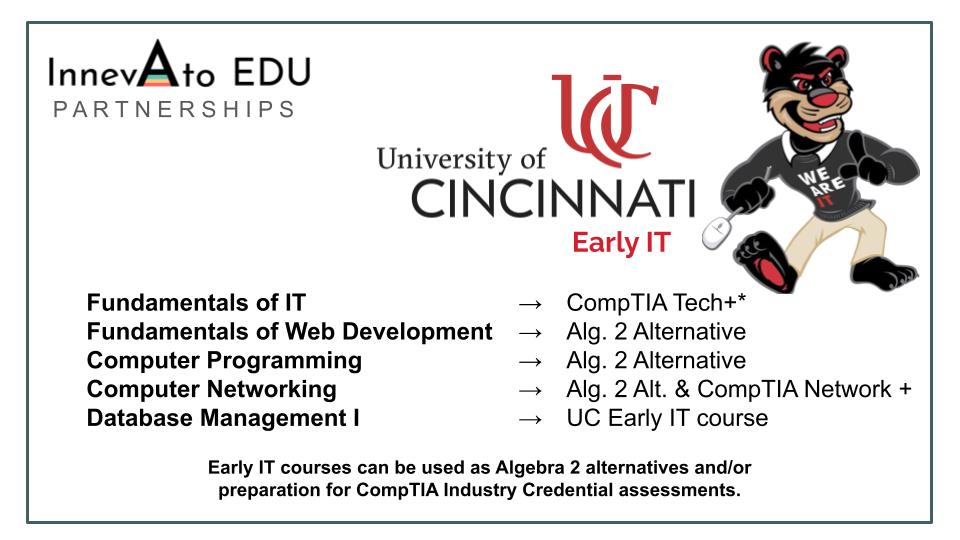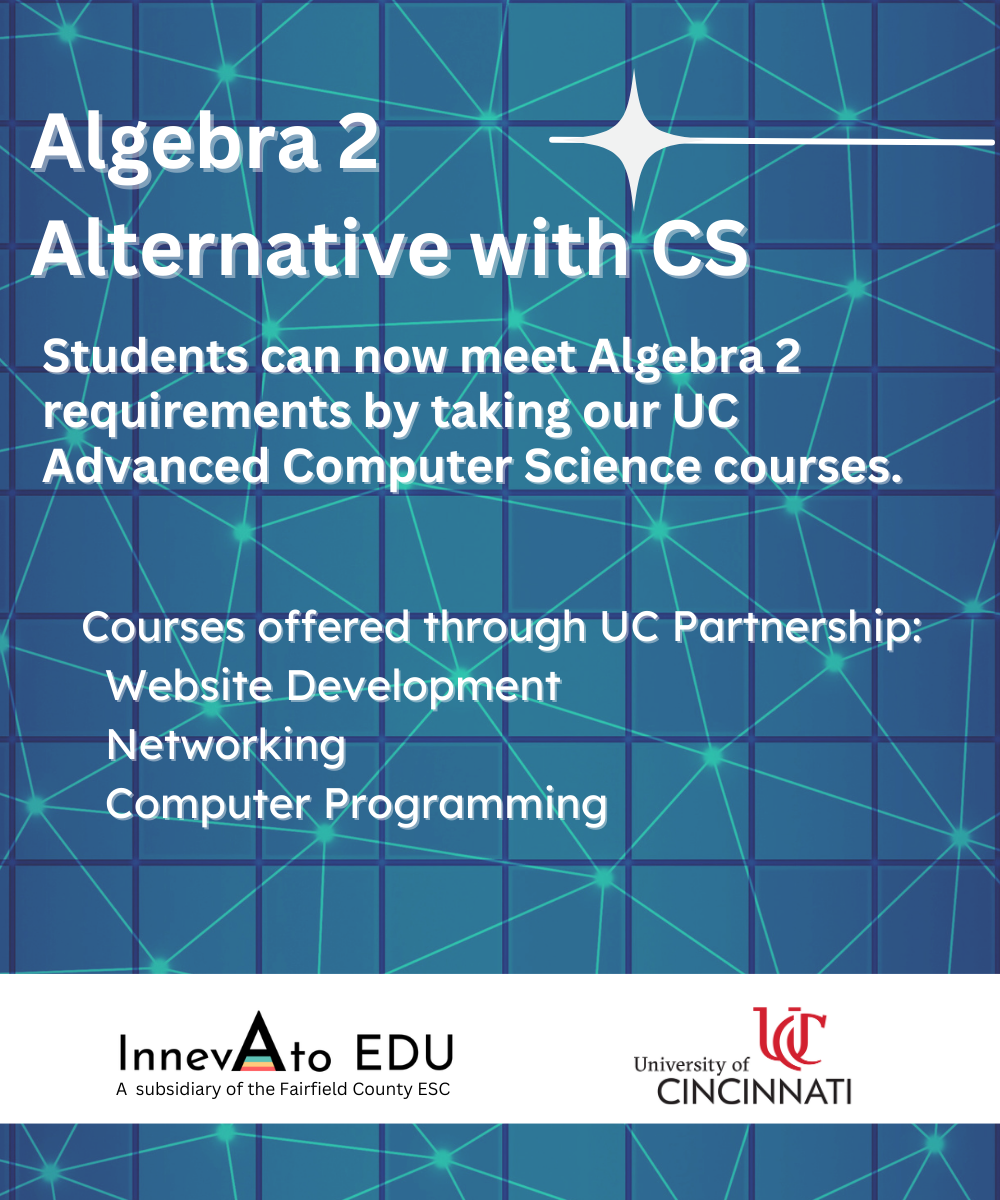
The Early IT initiative aims at transforming the the state of information technology workforce by increasing the quantity, quality, and diversity of the IT talent pool through providing access to affordable high quality education and high paying careers. This program is centered around key innovative concepts that significantly reduce the total cost of the bachelor's and master's degrees while improving the level of job readiness for the graduates. Learn more about the program on the UC Early IT website.
Early IT Course Options

CS (Computer Science) Promise Approved Provider through ODEW
Ohio House Bill 33 created the Computer Science Promise (CS Promise), allowing Ohio students in grades 7–12 to take one computer science course per year at no cost if it isn’t offered by their school. UC’s Early IT courses (via InnevAto EDU) are approved. Students may earn bilateral UC credit when taught by a UC-approved Early IT teacher; districts sign a bilateral agreement. Details are on the Department’s Computer Science Promise webpage. For more information, contact Tracy Collins, Ph.D., (513) 556-5161, collit6@ucmail.uc.edu.
Research-Based Instructional Design
InnevAto EDU’s courses are built on a research-based instructional design that prioritizes student engagement, accessibility, and academic rigor.
Grounded in Quality Matters standards and aligned to Ohio Learning Standards, every course integrates best practices in online learning, including clear objectives, interactive assessments, and real-world applications.
All courses are fully accessible, meeting ADA requirements and web accessibility compliance standards, ensuring that every student can navigate and succeed.
Competency-Based Education
Competency Based Education allows students to advance based on their ability to master a skill or competency at their own pace.
Students demonstrate mastery of a given skill or content, exempting them from additional work that aligns to the mastered learning outcomes.
With this in mind, the UC Early IT Courses fall into two main categories, which in turn dictates the competency approach that the course takes:
- knowledge based courses
- skill based courses

